|
Another fairly old review that made the cut in the revamp because of the quality of the material on offer. If you are remotely interested in the Blues, do yourself a favour and try and get hold of these. Although you can't currently get these on Amazon.co.uk, at the time of writing the 'buy now' links will take you to sellers who still have copies.
Scorsese has been a long time devotee of the blues and his homage to the form is a truly significant, if flawed achievement. The seven DVDs in this collection first saw the light of day as a series of feature length documentaries on US TV's public service network. In the UK, they were subsequently shown on BBC4, but shame on the BBC for having no plans to feature them on terrestrial TV.
Scorsese's approach, to dispatch a series of "name" directors, each charged with capturing their own take on the blues tradition, doesn't lend itself to a definitive history of the blues; anyone expecting such an account should look elsewhere. What you get with these films is a much more impressionistic, individualistic view of the music, some working better than others. Several techniques recur throughout the series, and extensive use of archive footage leads to a degree of repetition. The better films are those that rely more extensively on fresher interviews, live performance, and concentrate to a greater degree on the bluesmen and women who are still around - they're just more compelling and vital, less like a history lesson for a dying art form. The best of the series prove that the blues is still both a thriving music and a huge influence generally on virtually all forms of popular music
I've concentrated the bulk of the review on the Mike Figgis film Red White and Blue, primarily because it's about the UK blues scene, but also because it's one of the more straight forward pieces, with excellent interviews, some good archive footage and, most importantly, an excellent live session recorded in Abbey Road studios. Snapshots of the other films give a glimpse of subject matter and style so you can pick and choose your favourites. There is merit to each and everyone of them, so if you can, get them all!
Martin Scorsese Presents The Blues: Red, White and Blues
A Film by Mike Figgis
Primarily a film about the impact of the blues on post-war music in Britain (and the subsequent influence that British blues and blues-rock had on the scene back in the States, at a time when that country seemed to have sidelined its greatest authentic art form to a mere footnote in its history), Figgis' film starts by joining musicians such as Van Morrison, Jeff Beck, Lulu, Tom Jones, Peter King and Jon Cleary in the Abbey Road recording studio, kicking off with a terrific Morrison performance. And therein lies its greatest strength - it focuses on live performance wherever possible and, coupled with an excellent choice of interview (staring with reminiscences of post war England from the likes of Humphrey Lyttleton and the irrepressible George Melly, right through to Eric Clapton, John Mayall, Georgie Fame, Chris Farlowe, Eric Burden and Stevie Winwood amongst others), ends up delivering a documentary about a living, fresh musical form rather than simply creating a history lesson on an undeniably important legacy.
Lyttleton and Melly both talk about the traditional jazz and folk revival movements and the fertile ground that these created for an early British blues sound influenced entirely by the authentic black blues from the USA. It came as a surprise to me (ignorance I know) to hear Lyttleton talk enthusiastically about the records of John Lee Hooker, Muddy Waters and Howlin' Wolf along side the jazz recordings for which he is so well known. Georgie Fame, in particular, succinctly outlines the influence of black music (and the G.I.s who frequented his beloved Flamingo club) on the players on the British club circuit.
In the end though, you'll want this CD for the performances. From the unexpected delight of Lyttleton's band rendition of Bessie Smith's 'Any Woman Blues' through to Chris Farlowe's improvisation with Albert Lee (his guitarist on Farlowe's British version of 'Stormy Monday Blues'), the music is almost uniformly a delight. The Abbey Road recording sessions are a treat (yes, even Tom Jones), with Morrison in particular appearing to enjoy himself on a couple of blues standards, with the likes of the great Peter King (saxophone), Jeff Beck (guitar) and Jon Cleary (piano) in support.
Well worth the entry fee for any lover of the development of post war British popular music and the British blues scene in particular.
Martin Scorsese Presents The Blues: Feel Like Going Home
A Film by Marin Scorsese (written by Peter Guralnick)
Largely a tribute to the Delta blues, with good archive footage of Son House, Muddy Waters and John Lee Hooker. Best bits are the newer recordings by the likes of Willie King, Taj Mahal and Otha Turner. Current bluesman Corey Harris is the centrepiece as he moves from the Mississippi Delta to Mali to explore the similarities in the music that moved from Africa to the southern United States
Martin Scorsese Presents The Blues: The Soul Of A Man
A Film by Wim Wenders
Exploring the lives of some of his favourite bluesmen - Skip James, Blind Willie Johnson and J.B. Lenoir - through fictional film within a film and archival footage, this one is part personal pilgrimage and part history. Brought to life by covers of the featured bluesmen's songs by a number of contemporary musicians, including Bonnie Raitt, Lucinda Williams, Garland Jeffreys, Los Lobos and Cassandra Wilson
Martin Scorsese Presents The Blues: The Road To Memphis
A Film by Richard Pearce
Based around the musical odyssey of B.B. King and paying tribute to the city that gave birth to a new style of blues. There are original performances by B.B King, Bobby Rush, Rosco Gordon and Ike Turner. Again, the newer performances are worth seeing and the exploration of the story of modern player Bobby Rush, who continues to travel the "chitlin circuit" that B.B escaped, is illuminating - what goes around, comes around etc. Makes you wonder how far the blues has really come?
Martin Scorsese Presents The Blues: Warming By The Devil's Fire
A Film by Charles Burnett
A fictional narrative around a young boy's encounter with his family in Mississippi in the 1950s, and the inter generational tensions between the heavenly strains of gospel and the 'devilish' music of the blues. The film relies heavily on archival footage of some of the great southern blues artists but its interesting to be reminded that, for all the tensions between the two musical forms, there were more similarities than differences between the music of Saturday night and that played in church on the Sunday morning
Martin Scorsese Presents The Blues: Godfathers and Sons
A Film by Mark Levin
Blues lovers who relish the sound of the Chicago scene and Chess Records in particular may find this their favourite of all the documentaries. The film profiles Marshall Chess, who meets with rap icon Chuck D and together they fly the flag for Muddy Waters' ill-fated and underrated 1968 'comeback' album "Electric Mud". Added value around some archival footage never seen before of Howlin' Wolf and Muddy Waters, there are also original performances by Koko Taylor, Otis Rush, Magic Slim and Ike Turner
Martin Scorsese Presents The Blues: Piano Blues
A Film by Clint Eastwood
Sometime piano player Eastwood explores his lifelong passion for piano blues through a series of fairly straight forward interviews with Ray Charles, Dr, John and Dave Brubeck. Artists such as Charles are always worth hearing, but the interviews themselves are not helped by the prosaic nature of Eastwood's questions. Excellent footage of the likes of Art Tatum, Theolonious Monk, Fats Domino and Professor Longhair but the overall feel of the film is a little too reverential
Blues fans will probably find all of these films worthwhile, but the Figgis and Richard Pearce efforts are the Primer's particular favourites. Whichever you buy, you will find the DVDs are superbly put together, with excellent menu and navigation systems that allow you to play the standard film, play it with director's commentary included, or play just the music performances (skipping the narrative that brackets the performances). Extras include director's biography and interview, along with additional performances that didn't make it into the final footage.
You can buy the ones that interest you by clicking on the "Buy Now" link beneath the DVD images on the right of this commentary.
January 2005
See You Next Review

 |
|
|
Red White & Blue |
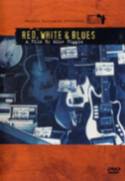 |
|
|

|
Going Home |
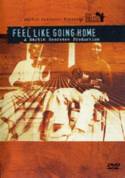 |
|
| 
|
Soul Of A Man |
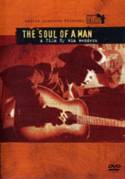 |
|
| 
|
Road To Memphis |
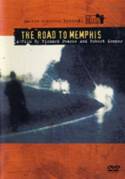 |
|
| 


|
Piano Blues |
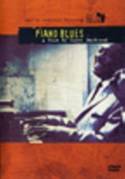 |
|
| |






Leave a comment